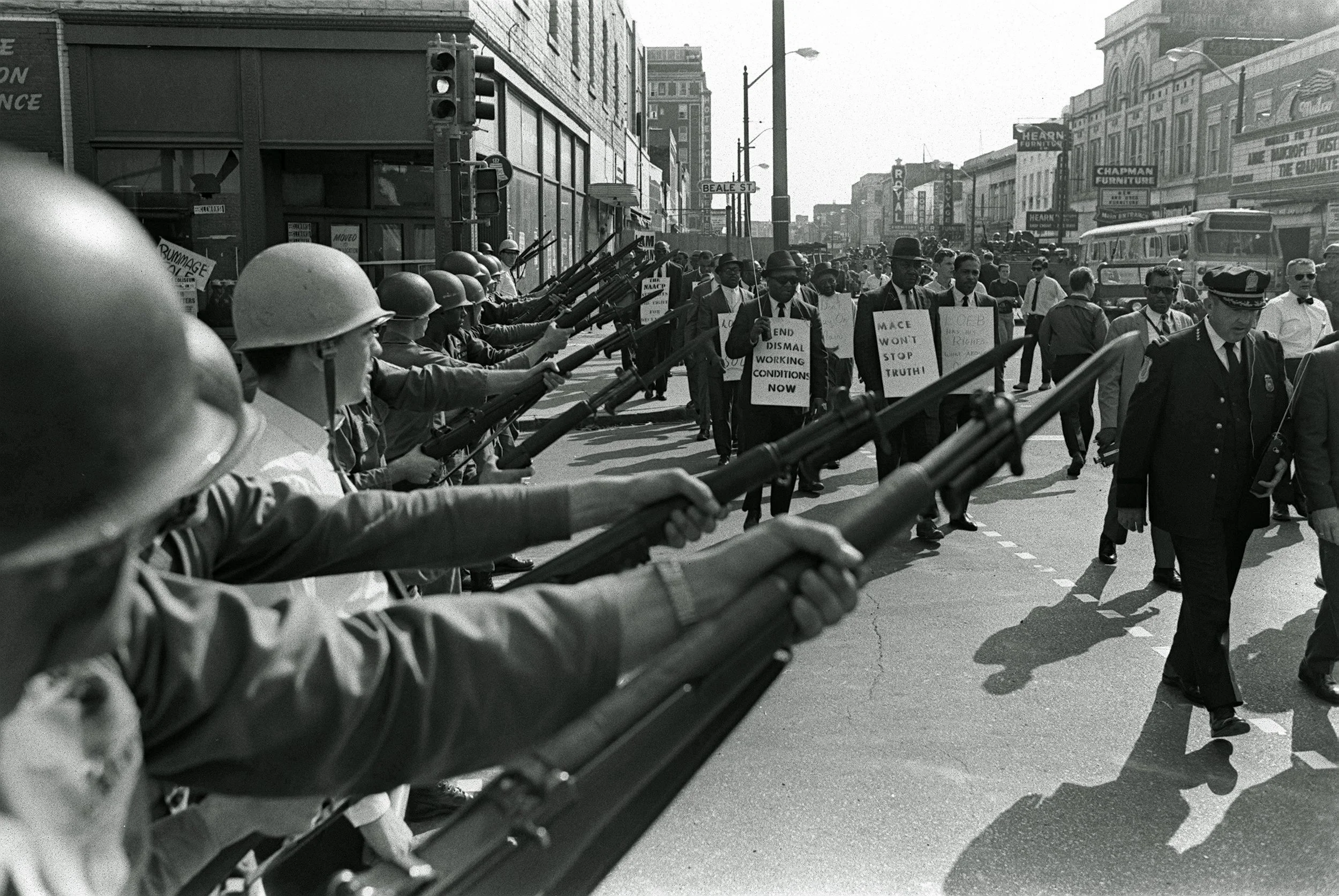AP Photographer Charlie Kelly: '...Thoughtful, persistent enterprise.'
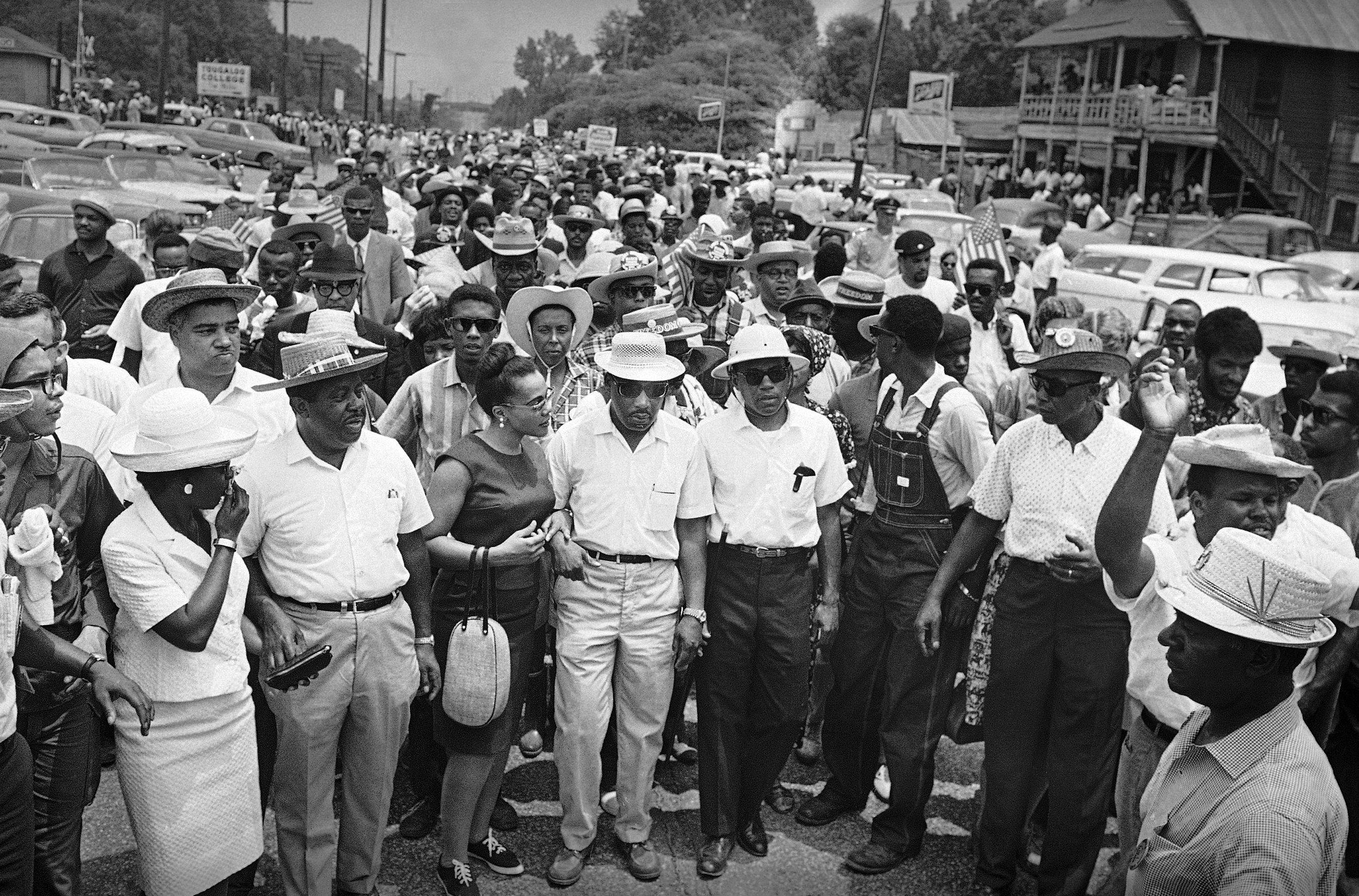
In over thirty years as an AP photographer, Charles Kelly (1932-2016) covered sports, local stories, Civil Rights, and everything in between. Kelly wrote that “different pictures arise from thoughtful, persistent enterprise,” and his photos exhibit these qualities. His persistence and enterprise in covering the Civil Rights movement and the plight of the Vietnam POWs and their families, allowed him a special kind of access, resulting in truly inspiring photography.
Born in Charlotte, North Carolina, Kelly joined the AP in Memphis in 1961 after working at the Charlotte Observer and the Charlotte News. Kelly began shooting photos as a teenager, and while in college, he took pictures for the college newspaper and yearbook. At the Charlotte Observer, where he had been hired as a retoucher in the art department, he made himself known in the photo department and was eventually hired to take pictures.
Kelly’s AP career took him from Memphis to Milwaukee, and finally to Atlanta in 1966, where he worked until his retirement in 1994.
Gene Blythe, an AP photo editor who worked with Kelly for 17 years called Kelly “a legend among wire service photographers.”
“He always seemed to get the best picture of whatever he was covering and many times the competition was working beside him. His angle, the lens he used, the expression he got or split-second reaction he captured just plain beat the competition.”
Associated Press photographer Charles E. Kelly, a member of the AP Photo Task Force, smiles in the photo taken in at the AP Atlanta Bureau, March 8, 1967. Kelly worked out of the Milwaukee, Wis. Bureau, but didn't care for the weather. So when the Braves moved to Atlanta, Kelly moved with them. (AP Photo/Jim Bourdier)
“Different pictures arise from thoughtful, persistent enterprise. It is significant that photographers exhibiting these qualities often acquire the reputation for luck. The telling thing is that they are constantly ‘luckier’ than their competition.”
In this Tuesday, Jan. 16, 1968 file photo, Dr. Martin Luther King, accompanied by Rev. Bernard Lafayette, talks about a planned march on Washington during a news conference in Atlanta. Lafayette was in Lowndes County, Ala., marking the anniversary of the death of Johnathan Daniels, a white civil rights volunteer who gave his life to save 17-year-old black girl Ruby Sales on Aug. 12, 2017 - the day of the Charlottesville, Va., rally. (AP Photo/Charles Kelly)
This Sunday, June 26, 1966 file photo shows thousands of civil rights marchers fall in behind their leaders on the last leg of the Mississippi March in Tougaloo, Mississippi. In the front row left to right are: Mrs. Juanita Abernathy, the Rev. Ralph Abernathy, Mrs. Coretta Scott King, Dr. King, James Meredith, Stokely Carmichael of the Student Non-Violent Coordinating Committee (looking back) and Floyd B. McKissick, National Director of the Congress Racial Equality. (AP Photo/Charles Kelly, File)
Twice-elected Julian Bond, seated, who has never been permitted to take his seat in the Georgia House, listens as he is questioned by attorney Denmark Groover at a session of the House Rules Committee in Atlanta, Monday, May 23, 1966. The committee unanimously denied Bond’s bid for his seat and then announced his candidacy for renomination in the September Democratic Primary election. Bond was denied his seat because of a statement denouncing U.S. policy in Viet Nam. (AP Photo/Charles Kelly)
Ku Klux Klansman Eugene Thomas smokes at the courthouse at Hayneville, Ala., on Tuesday, Sept. 28, 1966 during his trial for the murder of Mrs. Viola Liuzzo, a Detroit civil rights worker. The jury, composed of eight Blacks and four whites, declared Thomas not guilty. (AP Photo/Charles Kelly)
Ku Klux Klansman Eugene Thomas, right, leaves the courthouse at Hayneville, Ala., on Sept. 27, 1966, with his wife, left, and attorney, Art Hanes, center, former mayor of Birmingham, Ala. A jury of eight Blacks and four whites returned a verdict of not guilty for Thomas who was accused in the night rider slaying of Mrs. Viola Liuzzo of Detroit, Mich. (AP Photo/Charles Kelly)
Civil rights activist James Meredith began a solitary march from Memphis, Tenn. to Jackson, Miss. on June 5, 1966. Meredith, who was the first Black man to enroll in the University of Mississippi, was walking to bring attention to racial discrimination, and to encourage Black voters in Mississippi to register to vote. Shortly after crossing the border into Mississippi on June 6, Meredith was ambushed by Aubrey Norvell, who shot him multiple times. Meredith survived, and news of attack brought thousands of activists to Mississippi to complete Meredith’s march.
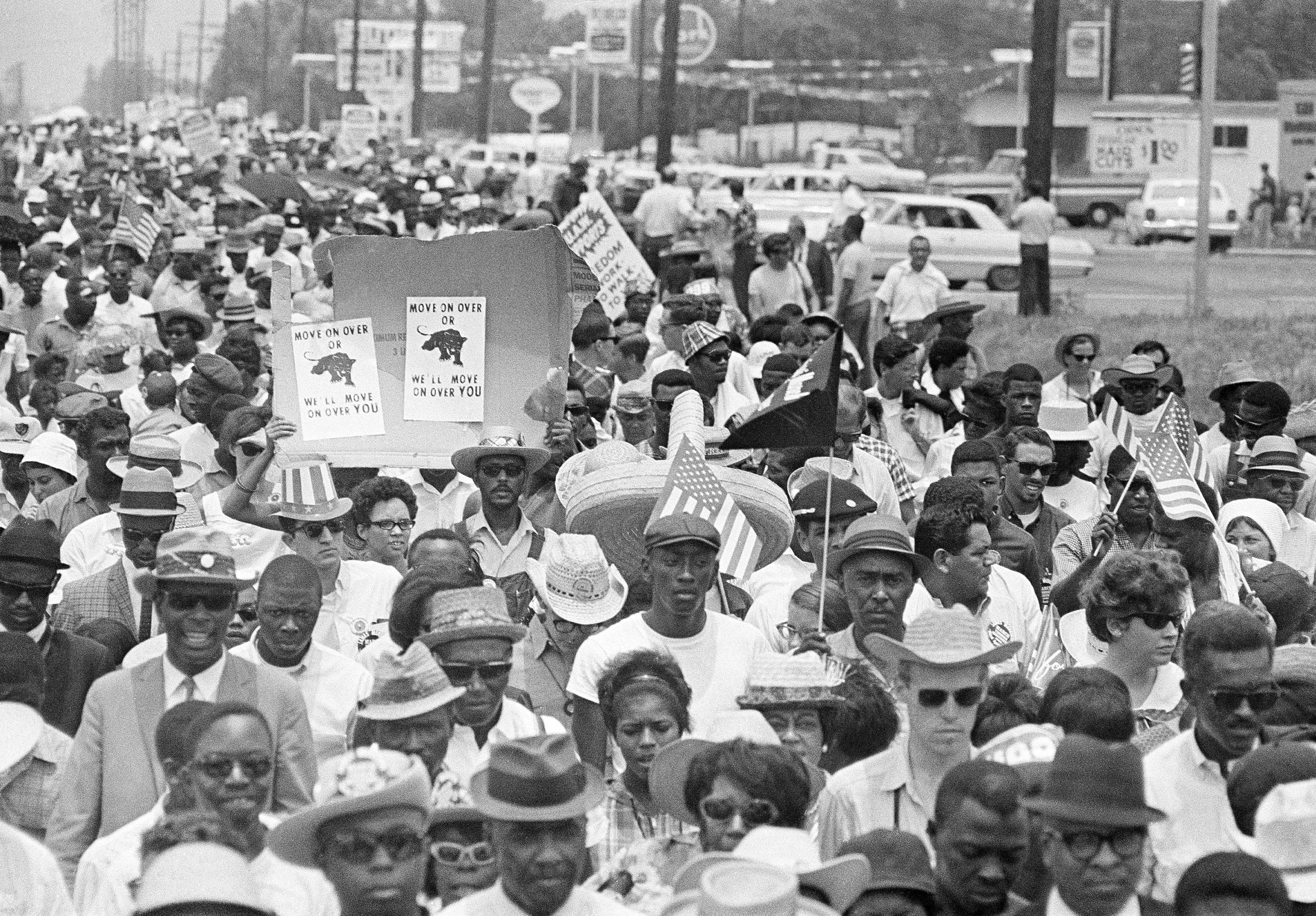
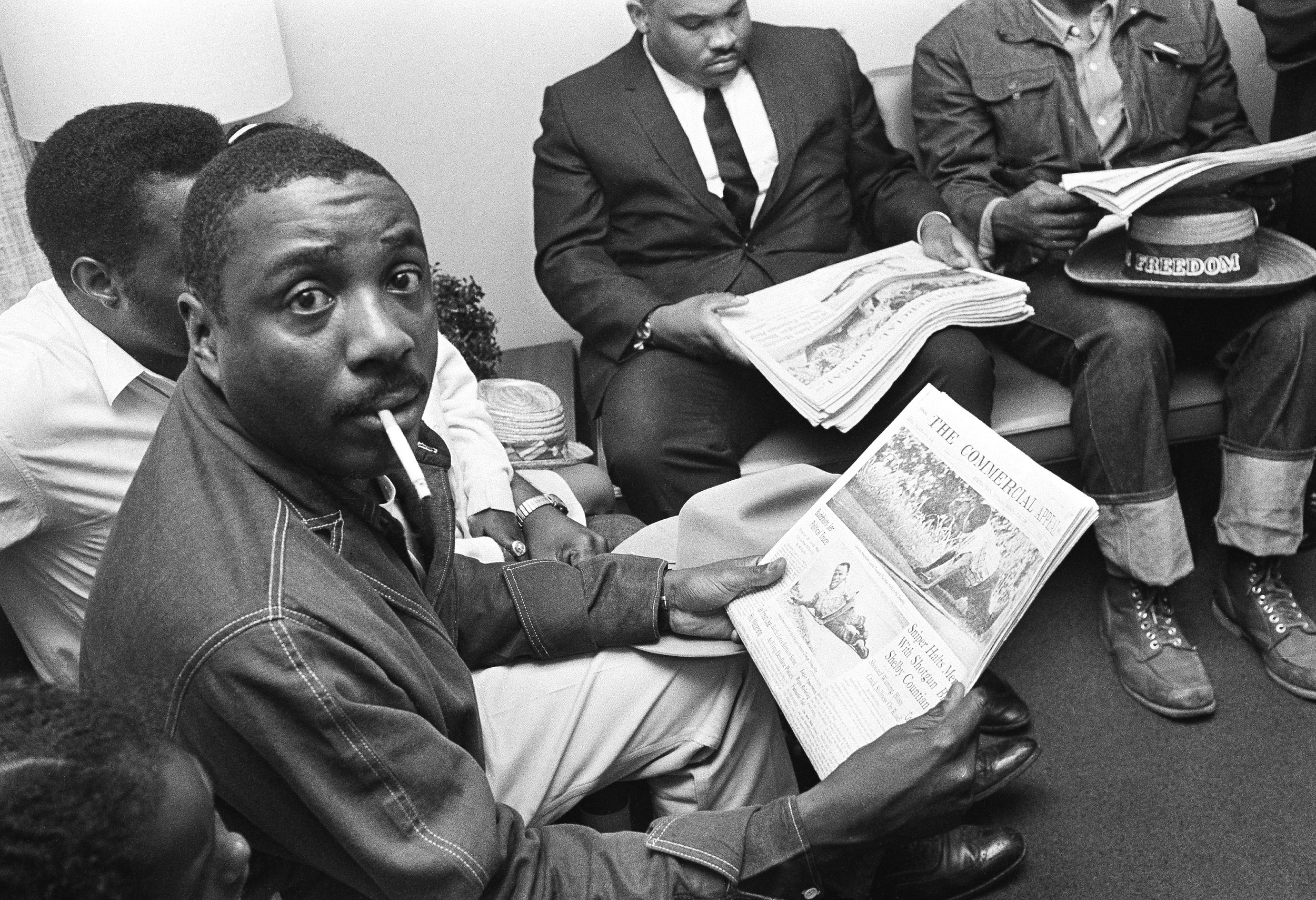
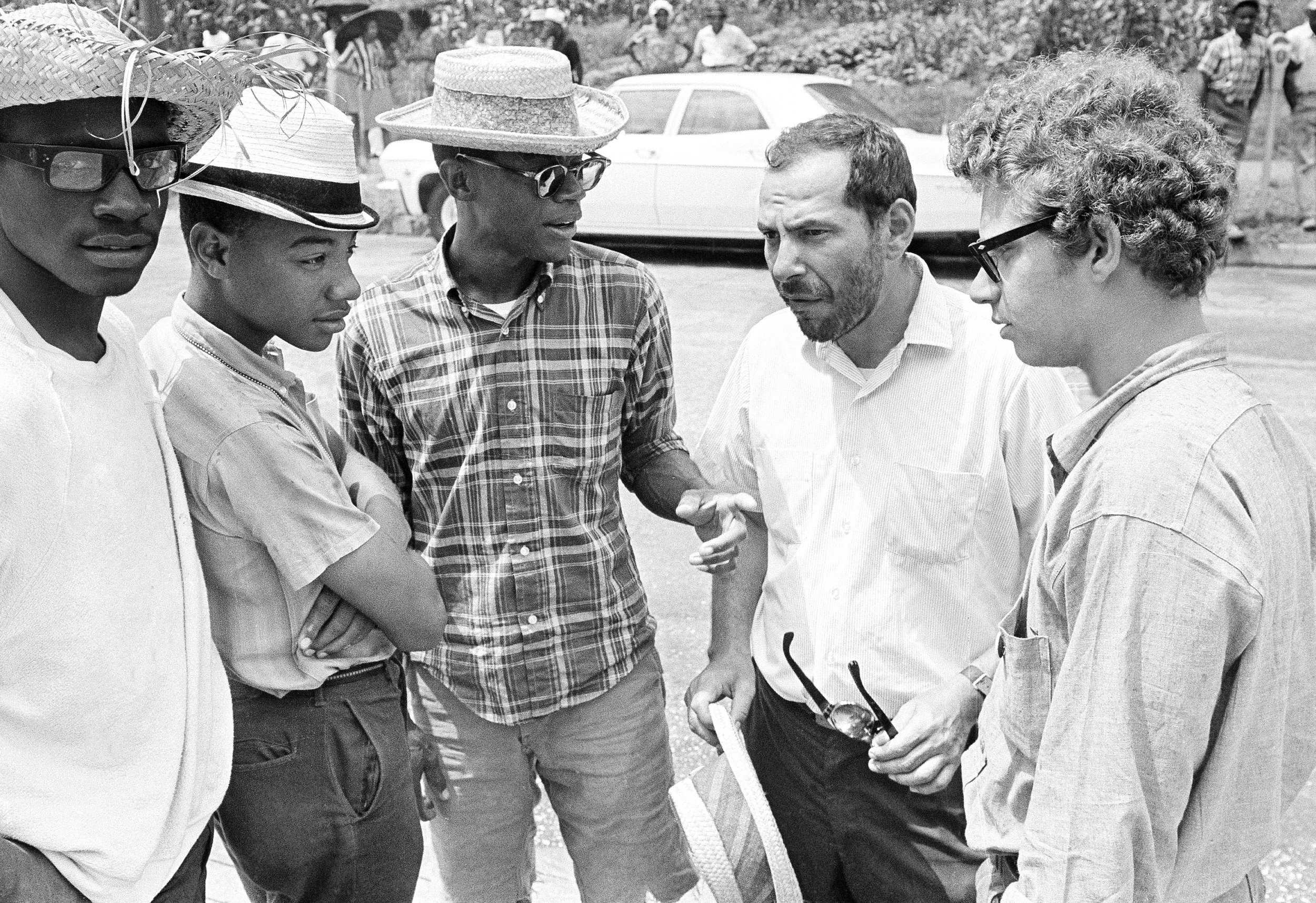
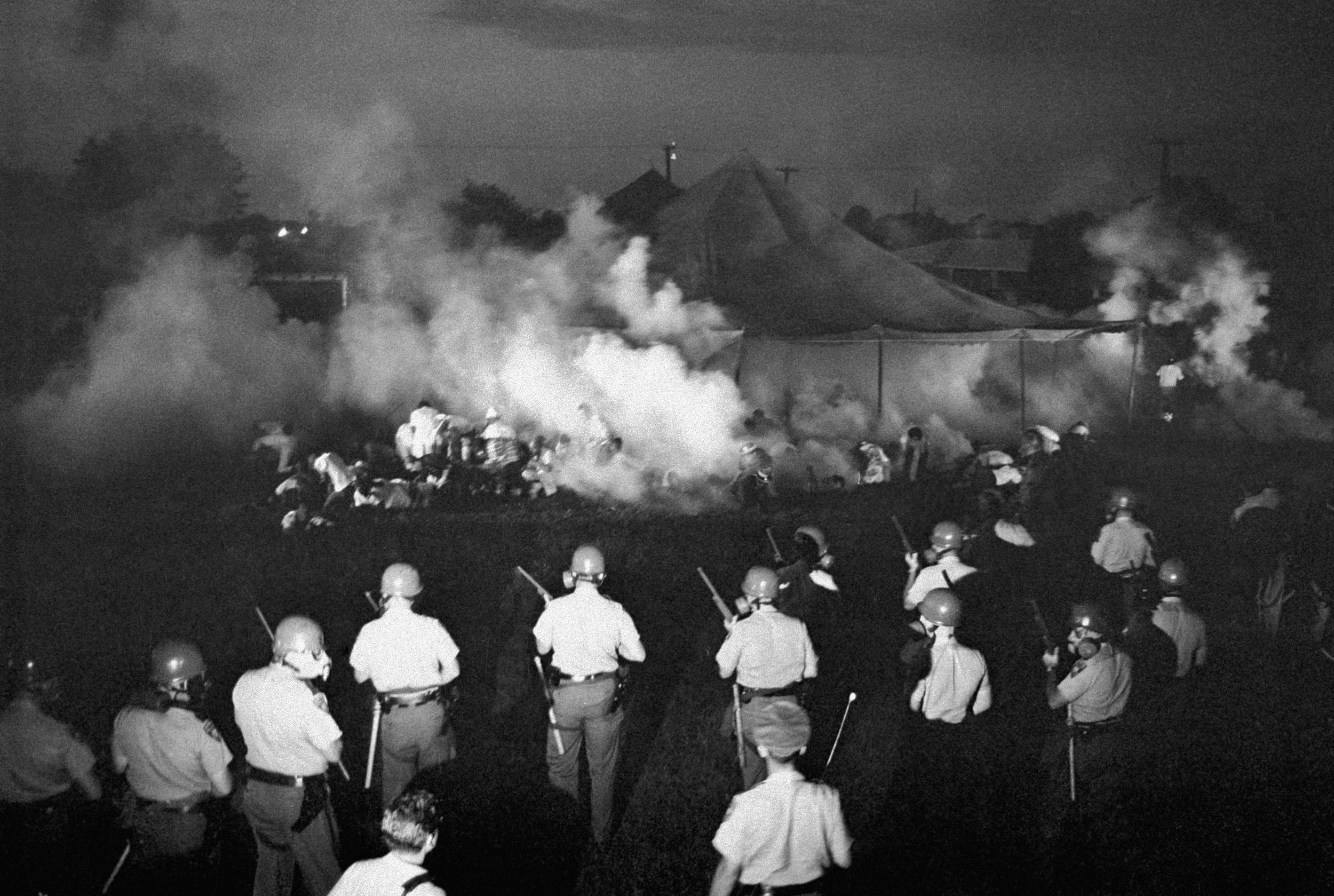
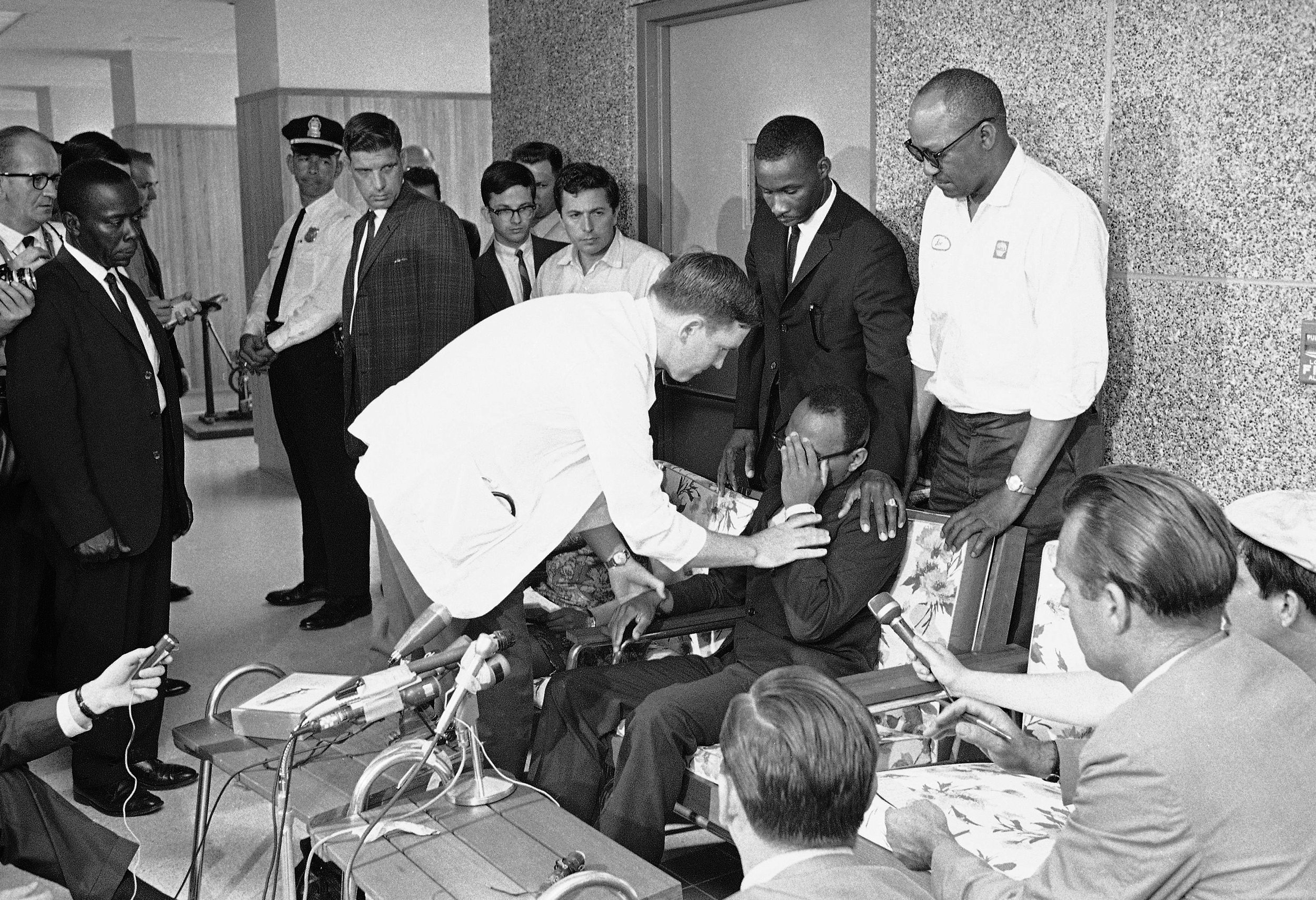
Striking Memphis sanitation workers march past Tennessee National Guard troops with fixed bayonets during a 20-block march to City Hall, March 29, 1968, one day after a similar march erupted in violence, leaving one person dead and several injured. (AP Photo/Charlie Kelly)
The Rev. Martin Luther King Jr. stands with other civil rights leaders on the balcony of the Lorraine Motel in Memphis, Tenn., on April 3, 1968, a day before he was assassinated at approximately the same place. From left are Hosea Williams, Jesse Jackson, King, and Ralph Abernathy. (AP Photo/Charles Kelly)
An unidentified woman weeps at the R.S. Lewis funeral home in Memphis, Tenn., as hundreds of mourners filed past the body of civil rights leader Dr. Martin Luther King, Jr., April 5, 1968, before it was sent to Atlanta for burial. (AP Photo/Charles Kelly)
Mourners crowd into the tiny chapel of a Memphis funeral home on Friday, April 5, 1968 to view the body of Dr. Martin Luther King who was assassinated in Memphis by a sniper on Thursday. (AP Photo/Charles Kelly )
Coretta Scott King, widow of Dr. Martin Luther King Jr., waves to newsmen gathered on the lawn of her Atlanta home, April 12, 1968, for a news conference called by the Southern Christian Leadership Conference. At left is new SCLC President Ralph D. Abernathy; at right is the Rev. A.D. King, brother of Mrs. King's slain husband. Mrs. King appeared briefly and did not participate in the news conference. (AP Photo/Charles Kelly)
The Rev. Ralph D. Abernathy, left, newly elected President of the Southern Christian Leadership Conference, tells newsmen here on Wednesday, April 10, 1968 in Atlanta of the SCLC's planned Poor People's March. Abernathy said the march will go by the way of Memphis, Tenn., where the SCLC's former leader, Dr. Martin Luther King Jr., was assassinated last week. At right is Andrew Young, one of Luther King's aides. The man at left is unidentified. (AP Photo/ Charles Kelly)
Workmen find Sen. John F. Kennedy greeting them at gate to Allis-Chalmers plant in Milwaukee, April 5, 1960. The Massachusetts Democrat faces Wisconsin’s decision in the presidential primary. (AP Photo/Charles Kelly)
Green Bay Packers coach Vince Lombardi and his team sport rain gear on the sidelines during their game against the Detroit Lions in Green Bay, Wis., Oct. 7, 1962. The Packers beat the Lions 9-7. (AP Photo/Charles Kelly)
The body of the Dallas Cowboys' tight end Jackie Smith goes rigid as he reacts to missing a touchdown pass in the end zone that would have tied the game in the third quarter of Super Bowl XIII in Miami Sunday, January 21, 1979. Picking up the incomplete pass is Steelers' cornerback Ron Johnson. The Steelers won 35-31. (AP Photo/Charlie Kelly)
Houston's Ken Spain (15) and North Carolina's Joe Brown (41) struggle for rebound possession in the NCAA third place game in Louisville, Kent., March 25, 1967. In rear is Houston's Elvin Hayes, who got possession. Houston's Leary Lentz (31) waits for tip. (AP Photo/Charles Kelly)
Brothers, Bob Unser, left, and Al, right, Albuquerque, N.M., with their mother, Mrs. Jerry Unser, near "gasoline alley" area of Indianapolis Speedway, May 30, 1965. Bob and Al will be among drivers in race. A brother, Jerry, was killed in 1958 at Indianapolis. (AP Photo/Charles Kelly)
Lloyd Ruby poses with a good-luck message from the Wichita Falls Times in Indianapolis, Ind., May 30, 1965. The car he'll drive in the Indianapolis Memorial Day race is in background. (AP Photo/Charles Kelly)
Lieut. Arthur Ashe, left, holds onto the the Sugar Bowl tennis trophy as he is congratulated by Yugoslavian star Nicola Pilic after winning the singles tournament, 5-7, 8-10, 6-3, 11-9 and 6-3, in New Orleans, Dec. 30, 1967. Ashe, a native of Richmond, Va., is stationed at West Point. (AP Photo/Charles Kelly)
Hank Aaron of the Atlanta Braves holds up the playing shirt of his former teammate, Eddie Mathews after Braves officials announced that the number will be retired now that Mathews has been traded to Houston, Jan. 19, 1967, Atlanta, Ga. Mathews was not present when his number was retired on Thursday by William C. Bartholomay, chairman of the Braves board of directors. Aaron and Mathews rank as the No. 1 home run teammate duo of all-time with career totals of 863. (AP Photo/Charles Kelly)
Cincinnati Reds Pete Rose, right, who will attempt a hit in his 44th straight game in Atlanta, July 31, 1978, is interviewed by Atlanta Braves pitcher Phil Niekro for a television sportscast prior to tonight's game. (AP Photo/Charles Kelly)
Pete Rose goes high to try a catch on a bouncing ball that put the Atlanta Braves Barry Bonnell on first base at Atlanta-Fulton County Stadium, Aug. 2, 1978. All eyes were on Rose who struck out in the ninth inning to end his 44-game hitting streak. (AP Photo/Charles Kelly)
Pete Rose of the Cincinnati Reds clamps his batting helmet after striking out to end his 44-game hitting streak as the Reds lost 16-4 to the Atlanta Braves, Aug. 2, 1978 at Atlanta Fulton County Stadium. Rose was the last batter in the ninth inning. (AP Photo/Charles Kelly)
Chris Evert, left, smiles as she meets Miss Lillian Carter, mother of President Jimmy Carter, at the Peanut Tennis Classic in Plains, Ga., April 30, 1977. Miss Lillian is showing her "Chris Evert" fan badge. The Tennis match featured the Phoenix Racquets vs. The Soviets in World Team Tennis. The courts were built especially for this event and will be given to citizens of Plains. (AP Photo/Charles Kelly)
Atlanta Hawks center Moses Malone topples over teammate Reggie Theus after a shove from Detroit Pistons forward Rick Mahorn in a scrap for a rebound in first period action of their NBA game at the Atlanta Omni in Atlanta, Ga., Jan. 3, 1989. Hawks forward Cliff Levingston watches the foul. (AP Photo/Charles Kelly)
Smiling Jimmy Hoffa leaves the Federal Building in Nashville, Tenn., June 7, 1962, following his arraignment on a charge of violating the Taft-Hartley act. A passing truck driver called to Hoffa and he answered with a big wave. (AP Photo/Charles Kelly)
Teamsters Union president James R. Hoffa leans on the window sill as he watches the scene outside his cell in Chattanooga, Tenn., Monday morning May 5, 1967. Hoffa was being held in the Hamilton County jail awaiting a hearing on his fourth motion for a new trial on jury-tampering charges. (AP Photo/Charles Kelly)
Lt. William L. Calley Jr., right, is accompanied by his military attorney Major Kenneth Raby at a pre-trial hearing at Fort Benning, Ga., Aug. 24, 1970. (AP Photo/Charles Kelly)
In February 1973, with the Paris Peace Talks underway and the end of American involvement in the Vietnam War in sight, Hanoi began to release United States prisoners of war (POW). Between February and March of that year, 509 American POWs returned to the United States and the story of their release quickly became a major story. AP writer Kathryn Johnson and photographer Charlie Kelly were uniquely prepared to cover it, as they had already spent years interviewing and photographing the prisoners’ wives.
Johnson’s and Kelly’s first meeting with the League of Wives of American POWs took place at the home of Jane Denton in Virginia Beach, whose husband, Navy Capt. Jeremiah Denton, had been taken prisoner by the North Vietnamese on July 18, 1965.
In a 2007 interview with Corporate Archives Director Valerie Komor, Johnson described getting to know these women “who did not know if they were wives or widows, whether their husbands were dead, and they were living lives of not knowing about their husbands, raising children alone, and it was a really horrifying sort of story.”
Johnson continued:
“And these women, talking to them, one at a time, all day long, at her house — and by the way, her home was near where the base is, air base, and you could hear the planes flying over, Air Force planes, all the time. And it was almost the touch of the Vietnam War still around feeling. And we were in her living room; they came in one at a time, and it was such a stream of consciousness of anguish that at the end of that day, Charlie [Kelly] and I both found out, we were both just shaking. And we were both tough cookies.”
Upon his release in 1973, Captain Jeremiah Denton agreed to have Johnson tell his story, but he did not want pictures. When Johnson asked, “How about Charlie Kelly?” the reply came from Mrs. Denton, “If it’s Charlie, it’s o.k.”
Jane Denton, wife of prisoner of war U.S. Navy Capt. Jeremiah A. Denton of Virginia Beach, Va., hears her husband's statement at Clark Air Force base after he led the first group of prisoners off the plane while she watched television at their home, Feb. 13, 1973. Denton closed his statement with a halting "God Bless America." He had been a prisoner in Hanoi almost 8 years. (AP Photo/Charles Kelly)
AP story as published in the Longview (Wash,) Daily News, Dec. 22, 1969.
U.S. Navy Captain Jeremiah Denton of Virginia Beach, Va., holds the hand of his wife Jane as they return to the Portsmouth Naval Hospital, Feb. 23, 1973, after his first appearance since he entered the facility for medical checks and de-briefing. Capt. Denton led the first load of returning U.S. prisoners of war off the plane at Clark Field. (AP Photo/Charles Kelly)
Former POW, U.S. Navy Capt. Jeremiah Denton of Virginia Beach, Va., remembers details of his torture sessions at the hands of North Vietnamese captors in an exclusive interview with Associated Press reporter Kathryn Johnson, at Burlington, N.C., March 30, 1973. Denton, who led the first group of prisoners back to the Philippines was in Burlington after a Founders Day speech at Elon College, where his son Jim is president of the student government association. (AP Photo/Charles Kelly)
AP story on Capt. Jeremian Denton as published in the Johnson City (Tenn.) Press Chronicle, April 1, 1973.
High wire artist Karl Wallenda beams as he nears the end of his walk on a high wire across the gorge, 750-feet high, at Tallulah Falls, Georgia on July 18, 1970. During the 1,000-foot walk, Wallenda performed two head stands for "our boys in Vietnam." (AP Photo/Charles Kelly)
Aerialist Karl Wallenda makes a short walk at Tallulah Falls, Georgia on July 16, 1970 on the large cable he plans to use in his 1,000-foot walk on Saturday across Tallulah Gorge at a point where it is 700 feet deep. It was Wallenda’s first walk on the cable and his wife told newsmen she was agitated by its lateral swing. Wallenda has said he believes the walk will be a record stunt. (AP Photo/Charles Kelly)
Headstanding high wire artist Karl Wallenda during his 1,000-foot walk 750-foot above the Gorge at Tallulah Falls, Georgia on July 18, 1970. The 65-year-old performer completed the stroll without incident. (AP Photo/Charles Kelly)
Text and photo editing by Francesca Pitaro.







